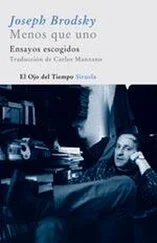The vacant silence in Shruti’s room was stirred by a nasal song. It was in an indecipherable language and its volume slowly grew. It was coming from the tiny wood-framed clock with Thai digits on the nightstand, and it was inevitable that the alarm would now make Acharya and Lavanya look at each other for a moment. The interminable song, probably a Thai song, filled the house as it did every morning. It was the 7.45 morning alarm of Shruti which she had set about five years ago in the ambitions of waking up early and reducing her illusory fat. The alarm never really woke her up but she tried every single day. Acharya used to find it poignant.
The alarm died abruptly, as it always did.
‘You really can’t turn this thing off?’ Lavanya asked.
‘I told you, I tried,’ he said, avoiding her eyes.
After the girl left with a software engineer for California, Acharya told his wife that he had tried to disable the alarm several times but could not figure out how to do it. Lavanya found it hard to believe that a man who was once rumoured to win the physics Nobel did not know how to disable the alarm in a silly timepiece bought in the streets of Bangkok. She suspected that, like her, he too wanted to hear the alarm every morning and enjoy the momentary delusion of imagining their girl still sleeping in her room.
Acharya wondered why daughters always went away. So keen they were on finding a moron and leaving. The futility of love and marriage — did they need a whole lifetime to see through it all? Didn’t they learn anything from the lives of their parents? Inevitably, he remembered the only two instances when he believed he had brought true grief to his daughter. Shruti always laughed at his conviction that he had made her suffer only twice. ‘Every day, you were a monster,’ she would say. The two episodes that he conceded happened when she was eight. The first was the morning she realized that chicken was not a vegetable and that he had lied to her about its origin. The second instance was when she had brought a poem to him that she had written called ‘Infinite Stars in the Sky’. He had taken her to the terrace and showed her the night sky. If the number of stars were infinite in the observable universe, he told her, then at every single point in the sky there would be an endless line of stars stacked one after the other, and that would cause the night to be so illuminated that it would be brighter than day. Since that was not the case, since stars were just tiny points here and there, it meant that the number of stars was finite. She did not know there was a word ‘finite’, and had looked very dejected. She renamed the poem ‘Finite Stars in the Sky’, but it was not the same. She did not write another poem for many weeks after that because she was afraid of her father’s facts.
Acharya was lost once again that morning. This time, he was in the trance of memories. Then he heard the voice. First as a whisper call, like the disturbing voice of conscience in old films that seeks the attention of the hero who searches everywhere for the source of the sound until he finds the speaker in a full-length mirror. The voice, the haunting insistent whisper, became a distant ungifted song that grew and grew in volume and tenor until he recognized it as the voice of Lavanya. ‘You are not supposed to just stand in those shoes. You’re supposed to walk. You wake up before the housewives of Mylapore every morning and then you just stand.’
Acharya went to his room and shut himself inside. He fed The Three Tenors into the music system and triumphantly thumbed the play button as retribution for everything he had to endure in the house. He sat on the edge of the bed and remembered how Shruti used to say that if he had more hair, and agreed to dye it black and comb it sideways, and opened his mouth more often in anguish, he would very closely resemble Pavarotti.
The piercing wail of ‘Nessun dorma’ filled the room, and he yielded to its anthemic glory. He stared back at his own images on the wall. How young and fierce he once was. There was so much hope in him those days for theoretical physics. But now he was tired. He was tired of the battles and tired of rubbish like Tachyons, Higgs Bosons and Supersymmetry. He felt in his bones the weight of how complicated the quest for truth itself had become. How obscure, how mathematical, how pompously it tried to exclude ordinary people. Physics was on the verge of becoming a religion. A medieval religion. A handful of seers stood on the pedestal and lay people had to accept everything they heard. He still found joy in theoretical physics, and in the mysteries of Time and gravity. But there was nothing he loved more now than his search for the eternal spores that came riding on meteorites.
In the decisive finality of ‘Nessun dorma’, so titanic, so perfect, he began to hear discordant beats which he slowly recognized as violent thumps on the door. He heard the desperate voice of Lavanya trying to rise above Pavarotti’s. He was about to increase the volume when he heard her say, ‘Shruti is on the phone.’ That made him open the door.
He did not meet her eyes as he went past her to the hall.
‘I have been banging on the door,’ Lavanya said, and then got distracted by the dust on the door. They had moved from Princeton ten years ago, but she had never gotten used to how easily dust gathered in Bombay.
Acharya held the receiver and grumbled that the line was dead.
‘Obviously,’ Lavanya said, ‘She is not going to wait for …’ She clenched her fist and yelled, ‘I am going to turn off that bloody music.’ The doorbell rang just then and she opened the door with a violent smirk.
‘Good morning,’ said the cheerful voice of Jana Nambodri. He was the best-dressed scientist she had ever known. Dark-brown corduroy trousers and a crisp white shirt today. She knew that he dyed his hair evenly silver, and she was not sure if she should hate him for it. She had a peculiar soft spot for men who were shorter than her. Also, he was the cultural force of the Professors’ Quarters.
Nambodri was visiting after a long time. She hoped he had come in peace. She let him in muttering, ‘Don’t worry, Jana, I am going to turn that thing off.’
‘It’s “Nessun dorma”,’ Nambodri said, ‘You cannot turn it off like that. It’s disrespectful.’
‘In my house you can,’ she said, and went away.
The two men stood in the living-room staring at each other. They heard Pavarotti perish abruptly, somewhat violently, and the sudden silence made the distance between them seem greater.
‘I’m sorry,’ Nambodri said, ‘The Round Table was not the place for that. I am really sorry.’
OPARNA GOSHMAULIK WAS still not granted the peace of anonymity, but she was now an insider. Those cold gazes when she went down the corridors in the wooden beat of her low heels, the number of old scholars who wanted to show her the right path while staring at her breasts, and their wives, some of them, who arrived to have an accidental meeting with her and see for themselves the talk of the Professors’ Quarters — those days were over. Only minor assaults remained. Some wiry postdoctoral students still gaped at her with infatuated eyes, an ancient professor of Number Theory who inhabited the corridors these days waylaid her and showed her his nature poems. Jana Nambodri continued to observe her in a way that he thought was wise and knowing. He wanted to sustain a mild tension between them. A cultured animosity, probably, was the second best thing he sought from a woman. Other radio astronomers still came down to her lab for what they said was just a chat and went back with the news of all that they surveyed — the looming shelves, chromatographs, spectrometers, the eager research students on hire from affiliated universities, the unmoving attendants who waited for something to happen and the many cartons, still unopened, that said ‘this side up’, including the cardboard box of a new coffee machine that they refused to believe was just that. But all this, the attention, malice and affection, she did not mind. Her situation was now improving. She even found the courage to paint her lips. (In pale shades.) Her thick healthy hair was still tied fiercely in the imagined modesty of a pony-tail, but these days she let some curls fall on her cheeks. She could not abandon the reassurance of unremarkable clothes though. Usually, a long shapeless top over blue jeans. But in the sea breeze, the flowing top sometimes hugged her figure, and she feared she was then a feast.
Читать дальше












